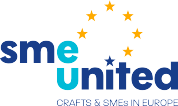Find the PDF version here. For more than 30 years, EN 81-1 and EN 81-2 have been the main lift standards in Europe and, particularly during the last decade, in many other parts of the world. These documents were withdrawn on August 31st, at midnight. Delivered by CEN/TC10 in 2014, EN 81-20 and EN 81-50 became the only standards that give presumption of conformity to the ESHR of the Lifts Directive for the design and manufacture of lifts in Europe, starting from the 1st of September. The first standard, EN 81-20, defines revised and updated safety requirements for the construction and installation of lifts. The second one, EN 81-50:2014, sets out the test and examination requirements for certain lift components. All lifts with an EU declaration of conformity issued after August 31st 2017 shall comply with the requirements of these new standards, or an equivalent level of safety, that is supposed not to be the same as before. The new standards aim at improving safety for both passengers and service technicians of lifts. The main changes to the safety requirements for passengers include those related to Unintended Car Movement (UCM) and ascending car overspeed, to the door detection systems, to the car door locking mechanism, to the fire classification of the car materials, to the car and shaft lighting and to the strength of both car doors and landing doors, and of car walls as well. On the other hand, changes aimed at improving safety of service staff include requirements related to the pit and machine-room access, to the car roof and pit refuge spaces and to the car roof balustrades. EN 81-20 also introduces some changes affecting the shaft design, such as requirements related to glass walls, ventilation and fire extinguisher devices. Shaft design is under the responsibility of the building designer, so effective exchange of information between the lift installer and the building designer, concerning these new requirements, will be crucial. SMEs in the lift industry are facing a double challenge. Firstly, they need to study and evaluate the main changes introduced by the new standards in order to apply them in the design and manufacture of new lifts. Secondly, they need the cooperation of their suppliers for the development of components for lifts and devices that meet the new requirements. National industry associations throughout Europe organised meeting and seminars for SMEs from the lift industry, raising awareness and promoting education and training on the new standards. Furthermore, EN 81-20 concerns more in deep with the availability of special tools on place (site), necessary for the emergency operations and similar issues, such as the detailed information about the necessary procedures and timely replacement of worn items which might cause the lift to become unsecure, which have not been fully implemented yet. This may be considered an advantage for the SMEs and the users, as it concurs to facilitate the development of a free market for the after sale services of lifts, even if this goal is not fully achieved through its current provisions. Such goal will be achieved as soon as CEN/TC10 will fully implement the new Standardisation Request issued by the European Commission (mandate M/549), by revising harmonised standards for lifts – EN 81-20 included – in order to meet “those essential health and safety requirements necessitating technical specifications dealing with maintainability and serviceability of lifts and safety components” (Annex I of the mandate). Finally, it is possible that this change of standards means for SMEs more burdening, as it must be studied with attention, considering also that the translations in several national languages will need time to be completed, and not all SMEs know the official languages in which the standards are released (English, French and German). Download the pdf version here.

ELEVATOR WORLD Europe is the official gazette of EFESME. Find here the articles and information we share with the lift community as a whole!
Want to know more about our activities and events?
Join our newsletter to keep up to date with the Federation's work to protect European lift SMEs.
Proud member of:



